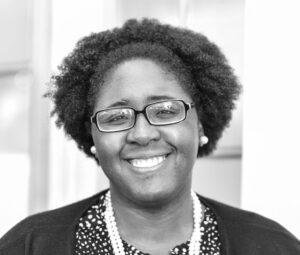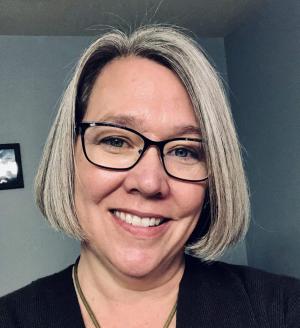Resources

PAYING ATTENTION I try to work it in casually, inconspicuously, but of course it is glaring. Students notice it immediately – the emphasis on a student’s progress instead of grades, the focus on their and my mental wellness as the primary means to be sharpest in learning, the inverting of power dynamics and the undoing of traumatizing power relationships in how the classroom is run. My body notices it, too. Decolonizing the classroom is difficult work and wildly unfamiliar territory. It runs directly in the face of what we instructors and professors know the classroom to be. And it runs directly to our worst fears and insecurities and does an elaborate dance around it – but not in a taunting way. It dances freely in a spirit of welcome and joining. A decolonized classroom, this liberating means of being communal learners together, requires constant movement. And truth-telling, where everyone names their fears. Students locate themselves in the learned cycle of education where their performance is assumed to dictate their worth. And instructors and professors work hard to resist the shameful impulse to agree. For this uneven correlation is all we know: performance is worth. Worth is performance. But is worth the performance? Decolonizing work requires an intense amount of internal resistance, of re-narrating what we have been trained to recognize as true, as opposed to what we may instinctually know to be true. Education can be ruthless at worst, engrossed in its unmoving standards at best. Instructors and professors know this all too well: “How else, besides grading, are we supposed to measure progress?” “How else will students take us seriously?” “How do we ensure students prioritize their coursework?” “How do we make sure our assignments do not take a back seat to another’s class or to a student’s ministry or to the ups and downs of their life?” This is the academic-body’s response to fear: rhetorical questions willing to gently carry our insecurity, for we honestly do not know the answer to these questions. And we may never know until we experiment with inverting power in our course structures. And failure. We need to try failure – again and again. And once we are accustomed to failing, to feeling like we are losing our grip on the notion of rigor we were trained to recognize – by sight, or by the all-too-familiar tightness in our chest - we can ask what lesson(s) failure has been trying to teach us all along. We instructors and teachers must become disciples of our failures, insecurities, and fears. Because it almost feels unbearable to not be liked or to feel misunderstood or to sense disrespect. But a decolonial classroom asks the instructor/professor what the lessons are: What messages of community and communal learning are thrust to the fore when the body struggles with varying messages of acceptance? In actively shifting the purview, the how and who, of learning, what might be able to be seen and understood differently? In a world inundated by systems of dominion and domination, mastery and expertise, often ignorant of the fullness or complexity of a person, what might a holistic form of respect look like? It has to be felt in the body. There is no way around it. We will only get pieces, as a common complaint is that we cannot be everything to every student. This much is true; but even in recognizing this expansive truth, expanding our sense of resisting strictures is still a lesson well-learned. HOW TO GAIN TRUST IN THE CLASSROOM Dear instructor/professor, How do you feel? It is only from here, the space of feeling, that decolonial possibility in the classroom can be born. It is not method. It is not strategy or project. It is a return to humanity, it is still-unfolding fullness. The process of learning happens to occur in the midst of a collective space where humans are learning how to be appropriately human together. Your decades of study does matter; but what matters most is your decades of living. Does your living have room in your classroom? This is decoloniality; it is a (means of) living into. To be decolonial means treating people like humans - not objects, or projects, or cogs in a machine - but like their life is beautiful and important and lovely. When instructors/professors begin to get a hold of this – first by addressing our fears, and next by allowing space for our pedagogical dreams to blossom and run a bit freer, then and only then can we broach the conversation and winning students’ trust.

One of the realities that the pandemics of the past eighteen months have brought home is how the different life situations of students change the impact of collective trauma on their bandwidth for learning. For some of our students, when the world ground to a halt, they found themselves with more space to focus, to engage with what they were learning, to connect with others. For many of our students, caregiving for children and sick relatives, loss of income and economic stability including access to safe housing, increased incidences of domestic violence, threats of racialized violence in public spaces, life-and-death struggles with mental health conditions, or the high rates of infection and death in their communities made focusing on learning nearly impossible. The dominant model of education that we work with in the United States is a factory model of schooling, developed within the shift to industrialization when we moved from a tutor/pupil dyad to a mass-produced improvement of worker skill. We put many bodies into a classroom with one teacher for efficiency, assume they all go through the same exposure to materials and activities for learning, and then grade the outcome on how well it measures up to some ideals set before we ever met the people who would enter our classroom. We started grading students at the same time we started grading meat and eggs, as products for consumption by the outside world. Those who don’t measure up are blamed for their lack of inherent ability or effort and failing them out is the responsible communication to the outside world of their individual deficiencies. It seems banal to have to name it, but this is a profoundly anti-relational and unjust mode of schooling. Again and again in working with early career faculty throughout the last year, we reminded each other of some basic realities: we had to focus on what is most important in learning; we had to respect where are students are in the moment and what they are capable of engaging given their lived realities; we had to remember that care for students as complex humans and getting through this season is as important as whatever we felt we owed some discipline, administration, or future employer in terms of measurable skill or knowledge outcomes. I have been reading Alexis Pauline Gumbs’ poetic marvel of a book, Undrowned: Black Feminist Lessons from Marine Mammals (AK Press, 2020). The collection originated as a series of online posts relating insights she had gained from learning about the colonizing classification and decimation of marine mammals in their encounter with white Western culture. She committed to becoming an apprentice to their wisdom in survival, adaptation, collaboration, and movement through the dangerous currents in which they found themselves. In a piece thinking about schools alongside marine mammals, Gumbs defines schools as “organizational structures for learning, nurturance, and survival, both intergenerationally and within generations” (55). When Gumbs reflects on the schooling behaviors of striped dolphins as they faced the decimation of a disease outbreak in the Mediterranean Sea in the early 1990s, she notes: What if school, as we used it on a daily basis, signaled not the name of a process or institution through which we could be indoctrinated, not a structure through which social capital was grasped and policed, but something more organic, like a scale of care. What if school was the scale at which we could care for each other and move together. In my view, at this moment in history, that is really what we need to learn most urgently. (55-56) I heard the community of scholars gathered in the Wabash early career digital salon asking similar questions. What if we turned this factory model on its head and instead asked how we could care for each other in the classroom and move together so that at the end of term people knew more about what was critical to know than they did at the start of the term, but did so in a way that honored the scale of care in the midst of a culture experiencing the concurring pandemics of novel coronavirus and not-so-novel systemic racism and wealth inequality? We learned a little bit about what it meant to “school” as a community committed to the survival and thriving of generations during a season of marked crisis. I don’t mean to romanticize this moment. Of course we did so in the midst of cultural calls for students to “go back to school” even as teachers at all levels were working tirelessly month after month to continue schooling despite enormous obstacles to learning. This public invisibility and cultural diminishment repudiated the ongoing schooling that was creating a “scale of care” for “learning, nurturance, and survival” from kindergarten to doctoral seminar. And, unlike Gumbs, whose work seeks to nurture emergent networks of activist belonging and communal resistance across and outside of institutions, in institutions of higher education faculty are embedded in late capitalist economies of exchange where investment and return, tuition and degrees, educational debt and faculty salaries are painfully and inextricably linked. To challenge the production models of social and economic capital in higher education for an organic model of caring for each other and moving together to adapt to existential threats is ironically to risk being called unprofessional, lightweight, irresponsible. However, developing such oceanic schooling may also be a revolutionary and adaptive response for survival in the midst of forces threatening to overwhelm the human species to extinction, from climate collapse to racism to economic inequality.